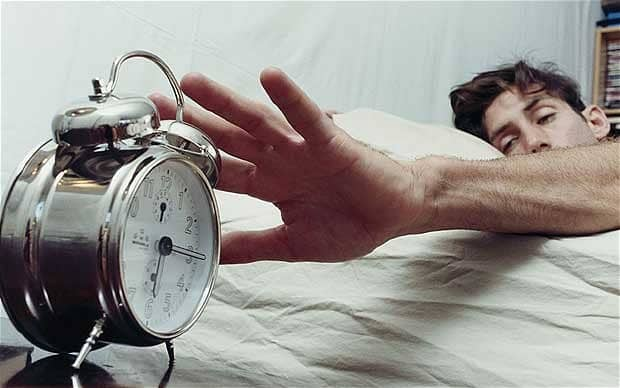It’s hard to believe how true that is, isn’t it?
It is 9pm. You are on the couch and dozing off. You can barely keep your eyes open but are too tired to get up to go to bed. So so tired. As a matter of fact, you are so tired that you convince yourself to watch the rest of the TV show, just so you don’t have to get up.
Yet at 10pm, once settled into bed, you suddenly don’t feel that tired. And it is then that you begin to worry that this might be another sleepless night.

So what’s going on? Why is it so hard to fall asleep, when all day you feel so tired?
There can be many factors that disrupt people’s sleep, even some that need medical attention, but first let’s go back to the basics.
1 – Caffeine intake. If you are a person that drinks more than one cup of coffee per day, make sure that your last cup is not later than 1pm. Surprisingly, even caffeine as early in the day as 2pm can disrupt a normal nights’ sleep.
2 – Sugar intake. Be mindful about what you are eating for dessert and how close to bedtime you are eating it. If ice cream and cookies are your favorite sweet treats, trying having it right after dinner. In addition, end the night with some berries (blueberries, strawberries, raspberries) and you will be able to lower your glucose level, which will also help you sleep.
3 – Exercise. If you work late into the night and are forcing yourself to workout at 9 or 10pm, reconsider this habit. While exercise is helpful in having a good nights’ sleep, too late at night or too close to hitting the sheets will also disrupt your sleep patterns. Instead, try getting up earlier. Waking up an hour earlier in the morning will still allow you to get more sleep at night.
4 – Closing System. Do you physically shut the door on your workday? Do you know when you’re officially closed and the day is done? Or are you checking emails right until the lights go off?
If you do not have a closing system, creating one is easy and should be done immediately (and every day!). Most people, especially those that travel or have their own business, have difficulty letting their day turn off. This feeling of still being ‘on’ is highly disruptive to normal sleep patterns. Here is how you create a Closing System.
- Choose a closing time. Then stick to it!
- At that time, give yourself 15 – 30 minutes to shut down. Move all the things that weren’t done today to a day when you are able to complete them.
- Fill in all tasks for tomorrow.
- Spend five minutes checking the rest of the week to see if anything needs to be changed, added or taken away.
- Spend 10 minutes responding to any emails that are time sensitive, move others into folders, delete those that belong in the trash and flag important ones that need to be taken care of in the morning.
5. Quiet Rituals. Create a quiet bedtime ritual. If you are always falling asleep to the sound of the TV, or the sight of your emails, design something different. Commit to a 15-minute quiet ritual as the last thing you do each night.
- Read a book that is not about work, but instead might allow you to escape reality for a few minutes.
- Play yoga or classical music and meditate.
- Find a free guided meditation app that can be played on your phone.
- Journal. Using a blank journal or notebook paper, take out a pen and start writing. It can be thoughts you have about your day, things you want to remember for the following day or anything that comes to mind. But make sure it is pen and paper, not on the computer. Once on the computer it is much too tempting to check social media, emails, etc.
6. Go to Sleep. Lastly, go to sleep when you are tired. Even if it seems too early, do it anyway. It is better to get into bed before you are too tired to begin your quiet rituals, then to not be able to sleep at all.
In order to create change…you will have to do things differently. And tonight, let’s try on sleeping!